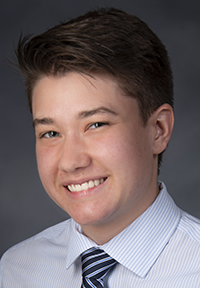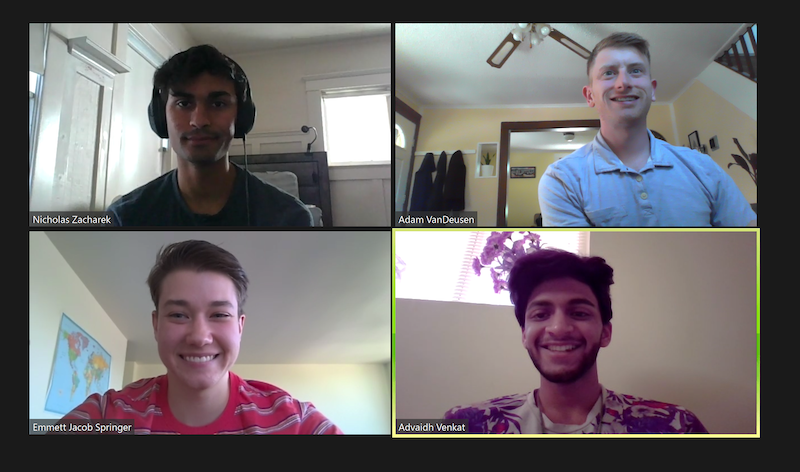
Hello! My name is Emmett Springer and I’m a 4th-year student studying Biomedical Engineering. I started working at CHEPS last January and have had the pleasure of working on several awesome projects, including Specialty Access, Outpatient Surgery (OPS) Revamp, and Pharma Staff Planning. I’m excited to start my Master’s degree in Industrial & Operations Engineering in the fall and continue to do great work with CHEPS!
As I wrap up my undergraduate degree, I’ve been reflecting a lot on what I’ve learned during my time at U of M so far and how I can apply those lessons as I continue in my academic and professional journey. Being involved in CHEPS for the past year has contributed significantly to my growth and has been so valuable as I figure out what I want to do with my career. I also love sharing what I’ve learned with those around me and I’m a sucker for a good, old-fashioned numbered list. Therefore, I present to you: Emmett Springer’s Top 5 CHEPS Lessons of 2020 (in no particular order):
1. There is so much important healthcare operations work to do
When I entered the college of engineering nearly three and a half years ago, I thought I wanted to pursue a career in medical device design, as many biomedical engineers do. While I still have a great appreciation for the work that goes into medical device design, I came to realize that my interests and strengths were more aligned with work involving healthcare delivery on a systems-level. For the past year as I’ve focused on this new direction, I continued to learn not only how little I know about healthcare systems (being the huge, complex beasts that they are), but also how much work needs to be done to optimize these systems. This pandemic has also shed an interesting light on our healthcare systems, demonstrating the incredible resilience of healthcare workers while exposing areas in need of re-engineering. Through various CHEPS projects and other CHEPS learning opportunities, I’ve gotten a glance into the healthcare world and I feel confident that this is where I want to be working and bring about positive change.
2. Adaptability and flexibility are crucial
It’s no surprise that adaptability stood out to me this year and I know I am far from the first person to talk about adaptability and flexibility in the era of Covid-19. Clearly a large part of my CHEPS (and U of M) experience has been adjusting to an online environment, however, there’s something else I want to point out too. I was told going into this summer to be prepared to work hard, produce quality work, and yet potentially have a large portion of that work not carried through to its intended end-goal. This was tough for me to hear at first, but I’ve learned that in this line of work (and especially amidst a global pandemic) it’s essential to adapt your work to fit the current (and often quickly changing) need, regardless of how much time or effort you put into a previous approach or project. At the end of the day, no work is wasted work because you’ve either learned a new skill, learned something new about the project, or both!

3. Empathetic and engaged leadership is strong leadership
Ok, this is the part where I get to gush about our incredible CHEPS faculty and staff. I am certain that my CHEPS experience wouldn’t be the same without Amy, Liz, Gene, and Billy. I’m so grateful for the empathetic and supportive environment that they’ve provided during this hectic, messy, and often stressful time. I know that each of them values me as an individual human being, not just a vessel to achieve work and that attitude permeates throughout CHEPS. Both professional and student leadership at CHEPS have also demonstrated a strong commitment to the CHEPS students, always offering valuable help and guidance so that we can achieve high-quality work. In my future career and life, I hope to lead with the positivity and dedication that they’ve shown me!
4. Continuous learning is awesome
An important aspect of CHEPS is the commitment to continuous student learning. This was made especially clear for me this summer when, in lieu of us not being able to connect in person, we had an hour set aside every day for “Lunch Club”, which included student presentations, journal club, and Lunch & Learns with guest speakers. This commitment to learning wasn’t just confined to the summer, though, and because of CHEPS, I’ve attended a number of interesting Lunch & Learns, webinars, and presentations that have changed how I think about healthcare systems and delivery. Learning is an important part of our project work too, of course, and I’m grateful for the opportunity to explore different areas and learn new skills through my projects. Every student has the ability to take control of their education and learn what they find valuable with the multitude of resources available to them here at the University.
5. Appreciate the little, silly things
This one is also a bit of a shout-out to our professional staff, specifically Liz and Gene. Between Liz’s memes in our daily good-morning emails and Gene’s silly “Items needed from staff” in our weekly memo reminders, I’m reminded to smile. Growing older and more experienced shouldn’t have to mean being serious all of the time. Life is brighter with a bit of silliness here and there!
